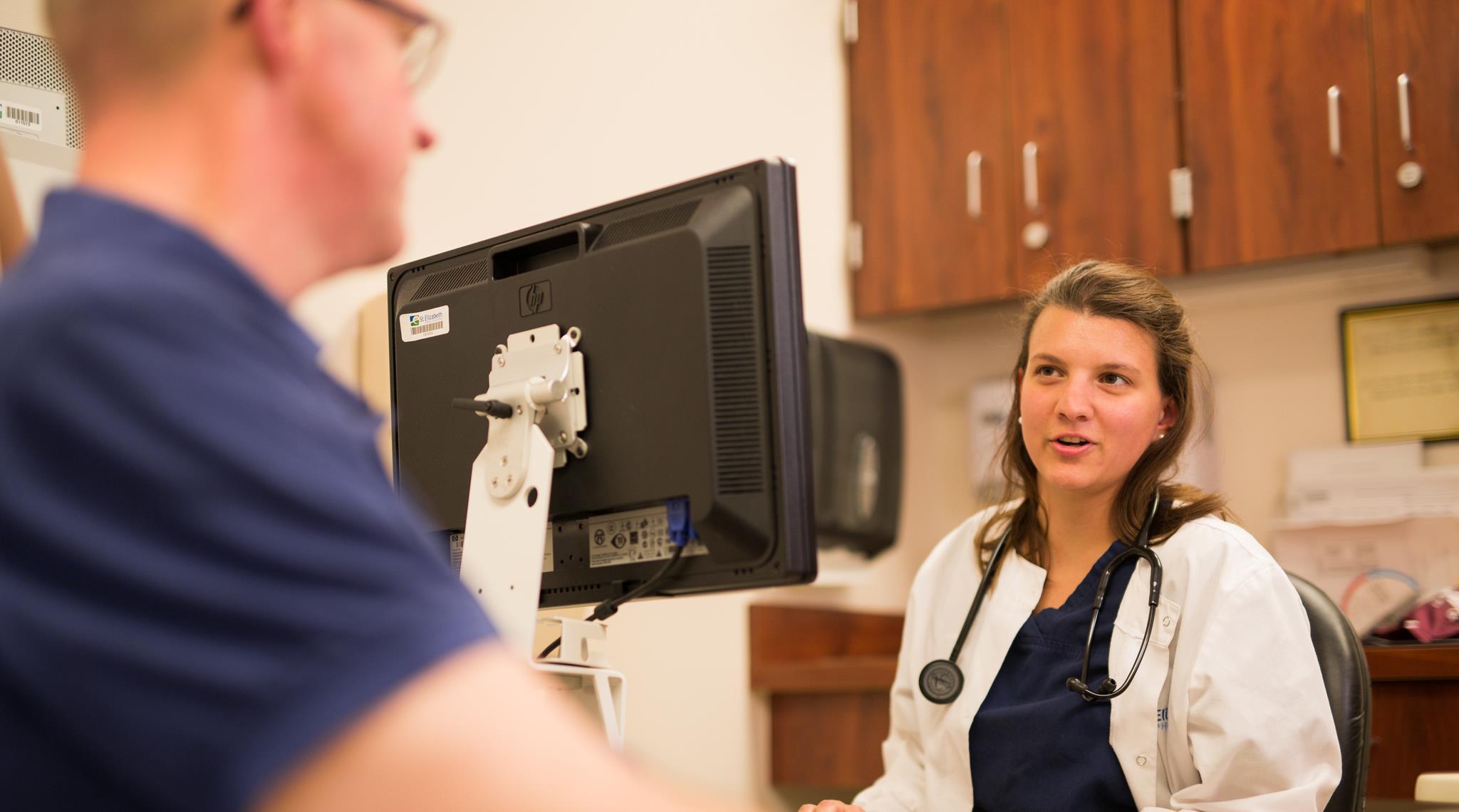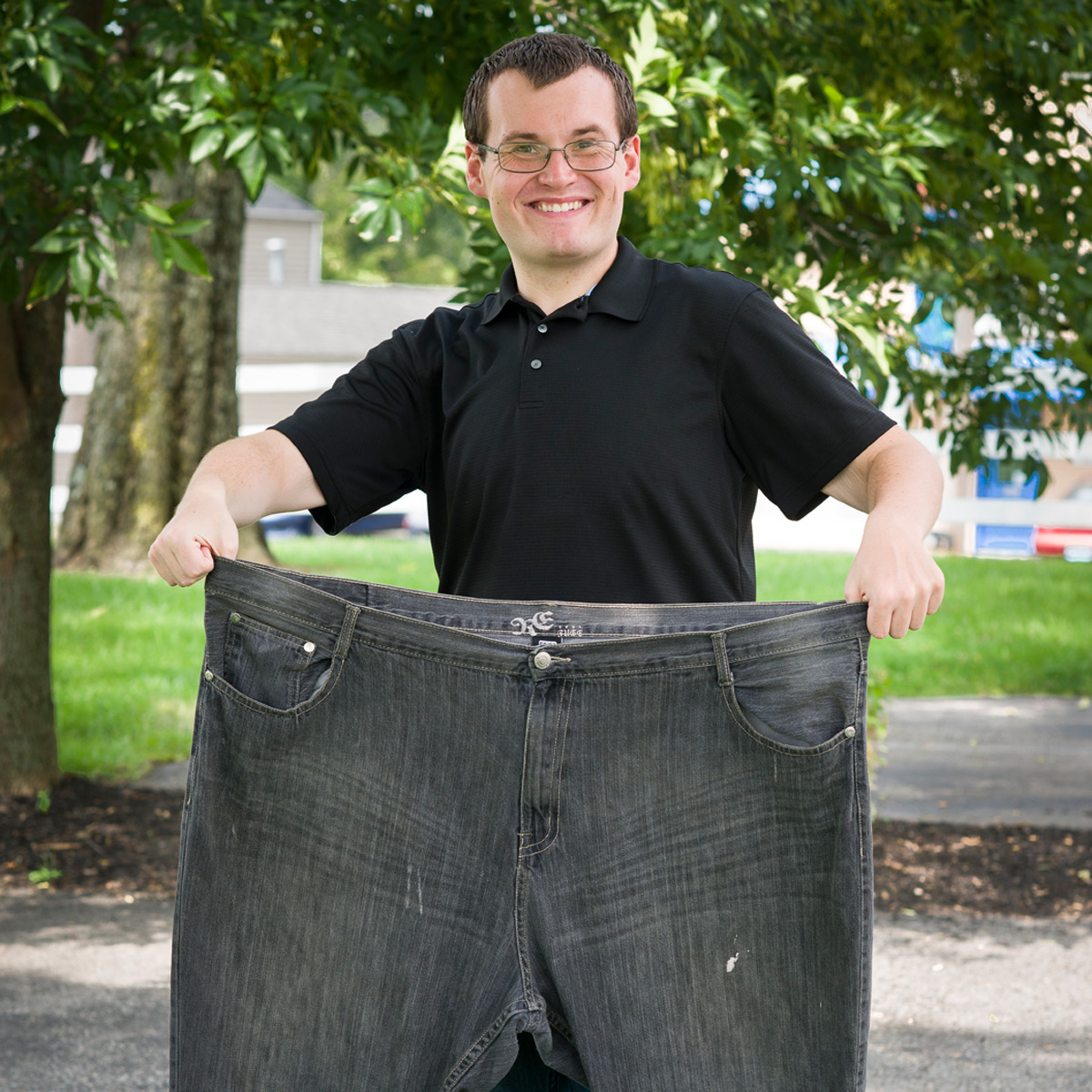Gastric Bypass Surgery (Roux-en-Y)
Gastric bypass surgery, or Roux-en-y, is an irreversible surgery that can produce life-changing results if you are struggling to lose excess pounds. Gastric bypass surgery ultimately changes the way your stomach and small intestine process food. Your stomach will be smaller and it will take less food to make you feel full.
After your gastric bypass, the food you eat will no longer go into some parts of your stomach and small intestine that absorb food. This means your body will not get as many calories from the food you eat, which should help you reach your weight-loss goals. Surgery also helps regulate the hormones that control hunger and the feeling of fullness.
At St. Elizabeth Physicians Weight Management Center, your gastric bypass is performed by two surgeons who work together to ensure you have the best outcome possible. This two-surgeon approach gives you less time under anesthesia, fewer complications and a shorter recovery time than usually experienced with the more common single-surgeon procedure.
Contact Us
Call today to start making lasting, healthy changes in your life.
(859) 212-4625 (GOAL)
Is Gastric Bypass for You?
Gastric bypass surgery may be an option if you have considerable weight to lose and have not been successful through diet and exercise. Remember, weight-loss surgery shouldn’t be considered a quick fix. After surgery, it is recommended to change your eating and lifestyle habits. This includes eating healthy foods, controlling your portion sizes and exercising regularly to achieve maximum weight-loss.
Your doctor may recommend gastric bypass if you have:
Gastric Bypass Surgery, a Two-Step Process
Gastric bypass surgery is done under general anesthesia. You will be asleep while it takes place and will not feel any pain during the procedure.
There are two steps to gastric bypass surgery. In the first step, your stomach is made smaller. Staples are used to divide your stomach into a small upper section and a larger bottom section. The food you eat will go in the top portion, which is called the pouch. It is about the size of a walnut and holds around one ounce of food. Because of this, you will eat less food.
In the second step, your bariatric surgeon will connect part of your small intestine to a small hole in your pouch. Your food will travel from the pouch into this new opening and into your small intestine. As a result, you’ll absorb fewer calories.
Most gastric bypass surgeries done at St. Elizabeth Physicians are performed laparoscopically. This typically results in:
What Can I Expect After Gastric Bypass Surgery?
You can expect to stay in the hospital for one to four days after your gastric bypass. During this time, our compassionate, professional bariatric team will monitor your progress carefully and answer any questions you might have about your procedure and recovery.
Most people who have gastric bypass surgery lose between 10 and 20 pounds a month in the first year after their surgery. This can be affected by the amount of calories you eat and the activity level you achieve through regular exercise. Under normal conditions, you can expect to lose one half or more of your extra weight in the first two years following your gastric bypass.
Losing weight through gastric bypass can often improve many medical conditions, including:
Long-term Support
St. Elizabeth Physicians offers post-operative counseling, support groups and behavior modification services to help you reach your goals after surgery. We want to be your partner for every step of your weight-loss journey.




